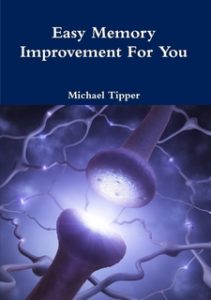Researchers at Northumbria University in the North East of England have recently released some research that shows student can gain a 5-7% improvement in memory tests if they work in a room that has “an aroma of rosemary”.
Students were given a series of tasks of increasing difficulty to perform whilst also giving them random tests of memory. These included being able to identify the location of hidden objects around the room at the end of the tests and reminding themselves to do a specific task at a specific future point in time or when a certain trigger incident occurred.
For example a common format was “when you come across XYZ can you please do ABC”.
Three groups of students were tested. One group in a room scented with Rosemary; a second group in a room scented with Lavender, and a control group in a room where there was no scent.
At the end of the tests the students in the room scented with Rosemary did statistically significantly better than the other two groups. In fact the students in the room scented with Lavender had a decrease in performance compared to the control group.
Of course given the time of year and with hundreds of thousands of students across the country about to start exam season, this article made the front page of the BBC website.
A great news item and I am sure the professor and his research students are slapping themselves on the back for getting this sort of media coverage. Well done to them.
Is There Another Reason For The Improvement In Recall?
But let’s just explore this for a moment.
I am of course about to hypothesise on an alternate view of events. I haven’t examined the details of the experiment, nor have I read the published research paper.
This is just a collection of thoughts having been exploring memory improvement from the technique and process side for the last 25 years or so.
I get to speak to a lot of people professionally (not always in a memory improvement context either – I do other stuff too!) and of course socially too.
I have lost count of the number of times people complain about their memory BEFORE they discover my specific interest in the topic.
Invariably when you probe a little more about their difficulties, it often comes down to not memory issues, but an interruption or even failure of concentration.
Typical memory challenges that are really concentration issues include:
- Forgetting people’s names within seconds of meeting them
- Not being able to find keys/wallet/bag at home
- Parking the car and not being able to find it again
- Getting to the bottom of a page of a book or newspaper and not being able to remember what it was about
All of these are primarily problems about concentration. I have written a more detailed post about concentration causing short term memory here.
So if you improve your level of concentration, or put another way, if you are more mindful and consciously in the moment.
Now remember Rosemary is a herb and not a medicine – well not one in the accepted conventional senses anyway. It is used in aromatherapy which is an “alternative” health system used by many people.
If you do a quick google search on the benefits of Rosemary, as well as its memory enhancement properties, you will find statements like this:
stimulates circulation and improves concentration, it is helpful for relieving symptoms of fatigue…
improves the mood and clears the mind…
…boosts the production of red blood cells and blood flow..
Here’s An Alternate View
So with that in mind, I have an alternate view of what this study has found.
My hypothesis is that the use of Rosemary stimulated the test subjects to make them more alert and therefore more aware of their surroundings.
When you have this level of alertness, which equates to greater levels of concentration and awareness, then you are going to remember more.
The net effect then, is that their recall abilities were better because there was less interference in their minds at point of capture.
And of course this led to the conclusion that Rosemary helps improve memory.
However they may have made one conclusive leap when really two might be more accurate.
Rosemary improves concentration and levels of alertness… which then improves memory and recall.
Remember the other group who sniffed lavender who didn’t perform so well compared to the control group?
Well in the words of the BBC reporter who wrote another piece on this research:
Lavender is traditionally associated with sleep and sedation.
A following the same leap of logic as bestowing memory improvement properties on Rosemary, they might have created the headline “Lavender is bad for your memory”. But that wasn’t the angle the editor wanted.
It would be interesting to see how Rosemary affects longer term recall.
Now I don’t want to dampen your enthusiasm if you thought that a herb was going to solve all your memory problems.
But realise there are many factors that go into how well or poorly your memory performs.
A simple sniff of a scent bottle or a magic pill isn’t going to make a big difference.
Fundamentally your memory is like a (metaphorical) muscle. The more you use and exercise it, the better it performs.
Of course if you abuse your body and allow yourself to succumb to the ravages of stress, it will get worse. A good diet and even moderate exercise will help.
You memory can be improved very easily.
If you want to find out more, then check out my book Easy Memory Improvement For You.

